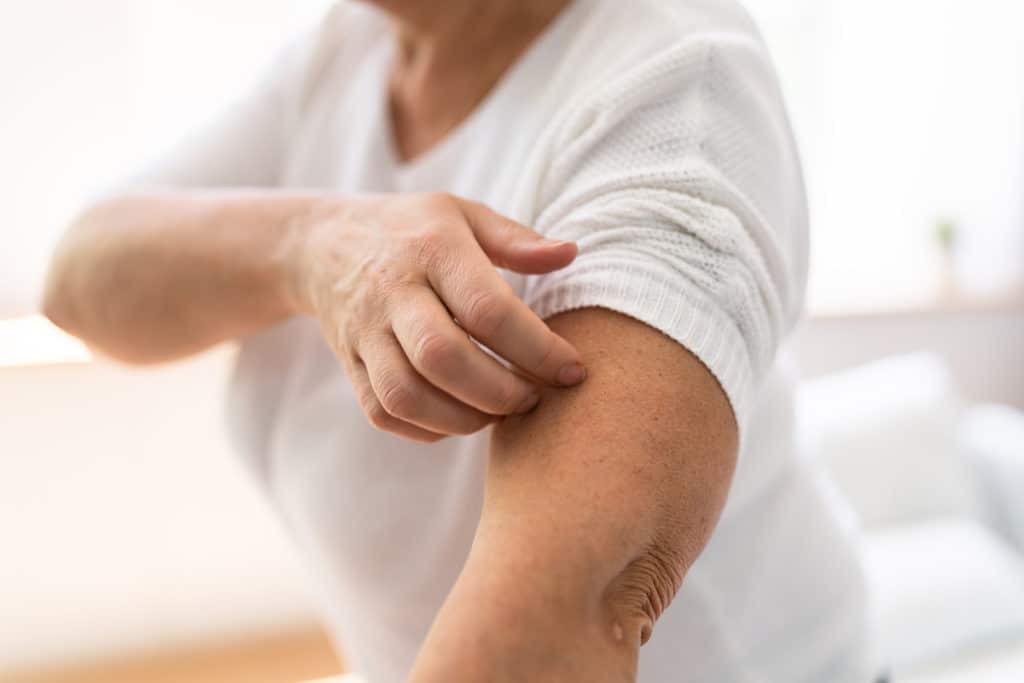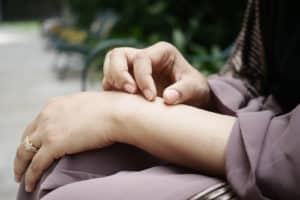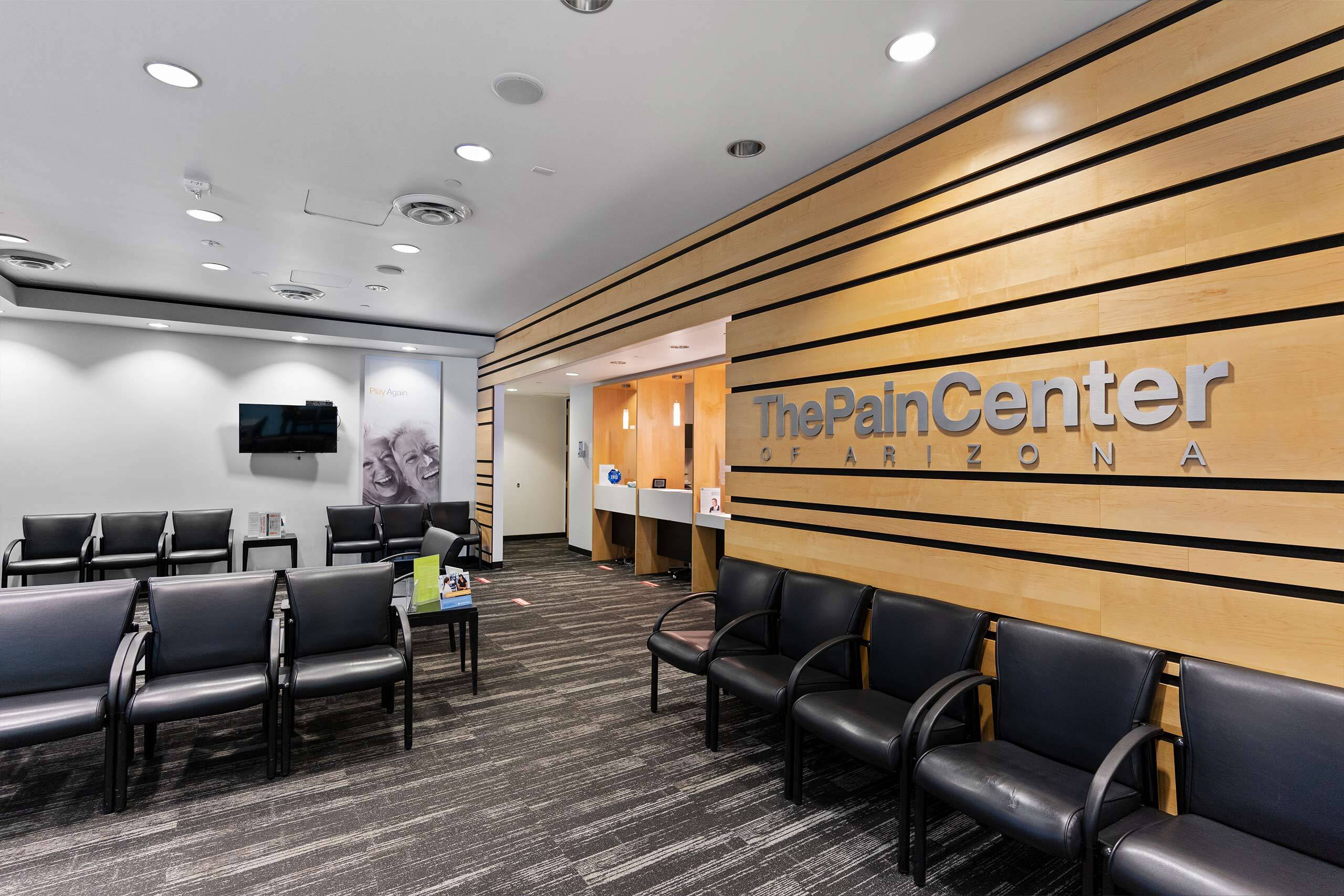Allodynia
Allodynia is a neuropathic pain (involving the nervous system) where an individual is severely sensitive to touch, making the most harmless activities immensely painful, such as combing your hair or wearing a shirt of a particular material–like cotton, for example.


What are the Three Types of Allodynia?
Depending on the type of allodynia, certain kinds of sensations will trigger neuropathic pain that is typically sharp, stinging, or burning.
The three types are:
- Dynamic – Pain caused by an object rubbing across the individual’s skin.
- Static – Pain caused by gentle touching or pressure.
- Thermal – Pain caused by changes in temperature.
What Causes Allodynia?
There are a few things ranging from conditions to medications that can cause this condition, including:
- Diabetes-related neuropathy
- Trigeminal Neuralgia
- Complex Regional Pain Syndrome
- Amplified Musculoskeletal Pain Syndrome
- Multiple Sclerosis
- Opioids
- Chemotherapy
- Nutritional Deficiencies
- Alcoholism
- Shingles
- Fibromyalgia
- Migraines/Headaches
- Trauma/Nerve Damage
How do I know if I have allodynia?
If everyday activities like getting dressed, showering, or even a gentle touch feel painful, you might be experiencing symptoms of it. At The Pain Center, our specialists can evaluate your symptoms to confirm a diagnosis.
How is Allodynia Diagnosed?
Your medical professional will ask you about your subjective pain experience – what pain you’re feeling, the intensity of that pain, and how that pain is triggered. They will gather your medical history and the information for any medications you may be taking that could be relevant to what’s causing your pain.
They will then do tests for the likes of diabetes, neurological disorders, and other conditions to identify what underlying conditions may be causing your condition, including the following:
- Blood tests
- Urine tests
- MRI scan
- CT scan
- Electromyogram (EMG)
- Nerve Conduction Studies (NCS)
- Quantitative Sensory Testing (QST)
Is allodynia treatable?
Yes, while it can be challenging, it is manageable with the right approach.
We create personalized treatment plans to address the underlying cause and reduce pain sensitivity.
Treatments for Allodynia
There is a wide array of ways to treat it and manage symptoms, including
- Oral and Topical Medications – Provides temporary relief.
- Counseling and Therapy – Treats underlying depression and mental sensitivity to pain.
- Physical Therapy – Desensitizes pain in the problem area.
- Nerve Block Injections – Delivers pain relief directly into the problematic nerve(s).
- Spinal Cord Stimulation – Relieves pain by implanting a device into your spine that
Can lifestyle changes help with allodynia?
Sometimes, yes. Avoiding triggers (like tight clothing or extreme temperatures), managing stress, and practicing gentle movement can help manage and reduce symptoms associated with your condition.
Commonly Asked Questions
Is allodynia fibromyalgia?
Allodynia isn’t fibromyalgia but rather a symptom that may occur in the condition. People with fibromyalgia may experience the effects of allodynia such as pain from light touch or gentle pressure.
What autoimmune disease causes allodynia?
Allodynia commonly develops from diabetes, fibromyalgia, migraine syndrome, and other neuropathic conditions.
Is allodynia stress related?
Chronic stress can trigger symptoms as the result of other problems developing that are associated with the condition. For example, chronic pain due to stress-migraines can lead to symptoms.
Why does allodynia make normal touch feel so painful?
Symptoms occur when the nervous system becomes hypersensitive, misinterpreting harmless sensations as threats. This “rewiring” of pain signals is complex, but our specialists are trained to address it effectively.
Does allodynia ever go away on its own?
In some cases, if it’s tied to a temporary condition (like post-shingles pain), it may improve over time. For chronic cases, professional treatment is often needed. We’re here to help you find lasting relief.


Get the care you need within 24 hours*
We know when you’re looking for relief for your chronic pain, you can’t wait any longer than you already have. This is why we can schedule you with an appointment within 24 hours at most of our pain centers across the Valley, so you can start your journey to life-long pain relief as soon as tomorrow.



